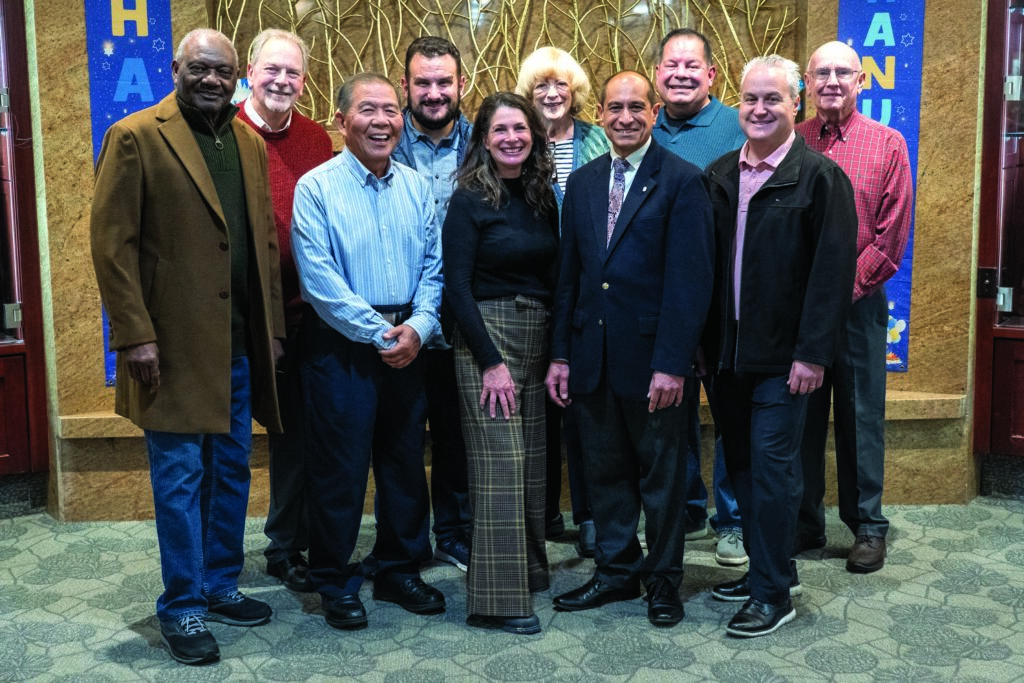Viewpoint: What do we stand for?
With input from some of our more engaged citizens, and the mapping skills of certain of our city council, we have, in the shortest possible political time frame, gone from a community united in our opposition to by-district elections for city council, to a city that is seemingly willing to embrace the utility of districts to create and codify boundaries that unite residents in common purpose, based on shared demographics and neighborhood of residence.
And, I know there is a word for that, isn’t there?
It is also impossible to miss the irony that our highly respected and cherished self-governing processes creates during public input and council deliberations of every significant issue, decision, and action that must be taken to conduct the people’s business in the Claremont way — an irony not missed by the demographer who served as our city’s consultants on both districting efforts.
When they completed the inaugural district voting map process in 2019, they left with a clear and unequivocal understanding, that Claremont does not want by-district elections, and its council was committed to working to exempt small communities from being required to adopt a by-district election process, without significant cause.
So when they returned to conduct the Census-required redistricting, the consultants brought with them a suggested district map that was the least disruptive of existing boundaries, and minimally disenfranchising of citizens placed in a district not selecting its councilperson later this year. A decision clearly in keeping with any reasonable interpretation of the prevailing attitude just two years ago, and one which would minimize the chance of turning the required redistricting process into what it became.
What I observed over the course of the virtual presentations was an unanchored and untethered attempt to justify the creation of five communities of interest districts, without regard for the inherently divisive nature of districts with common purpose, and more disturbing, without much concern for the 2,500-4,000 citizens placed in districts where they would not have an opportunity to cast their scheduled vote in 2022.
Had the council exercised the wisdom to favor, in principle and from the outset of the process, the minimally disruptive option presented by the consultants, and accepted the consultants assessment that it met the legal requirements within the discretionary limits allowed by precedent, the greater good and will of the vast majority of our neighbors would have prevailed, until the council can facilitate the restoration of at-large election of all our councilpersons.
In the end, there was a silver lining associated with the district map that was selected, not because the majority of the council opposed either boundary disruption or number disenfranchised by any given map, but because of the courage and tenacity of Councilperson Sal Medina, who never wavered from his position that preserving the franchise of every resident of Claremont was his first concern, making it impossible for him to accept any district map that would disenfranchise thousands of voters later this year.
His steadfast commitment to preserving and protecting fundamental principles of our democracy, and a citizenship defining right, was unhesitatingly supported by Mayor Jed Leano, who remained equally steadfast in his commitment to minimize the community disruptive impacts of by-district elections, and his preference for the consultants’ proposed map, which was the least disruptive map being considered for adoption.
And finally, I realize that many of my letters and opinions published in the COURIER seem at times to be overly critical and blunt based on what I perceive as a serious drift from governance based on commonly held principles that reflect our values, and a vision of the future that pays forward what we inherited as the vision of our predecessors. The principles and values that once defined our community are challenged, and all too often compromised, in decisions that cede priority status to special interests and cherished norms, above the obligation and responsibility to base decisions on the principles, values, and vision of our general and sustainability plans.
There are far too many urgent challenges in the present moment, and certainly on our future horizon, that can only be met in solidarity and agreement on the principles and values we share in common. The hope I share in closing most of my critical opinions on the state of Claremont’s body politic, is that we do so before it is too late to reclaim control of our community’s destiny.
Joe Lyons
Citizen of Claremont










0 Comments